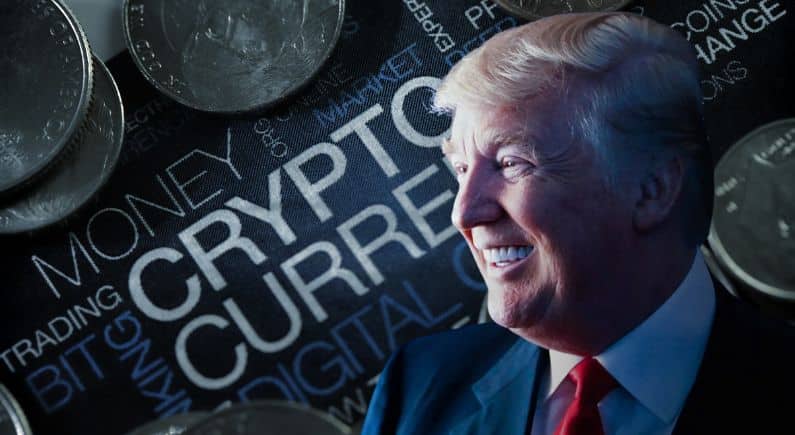South Korea crypto crackdown to result in $2.6B losses

The regulatory overhaul will see two-thirds of the country’s crypto exchange shut down by the end of September.
South Korean crypto-traders are expected to brace for losses of over $2.6 billion in kimchi coins as many local exchanges struggle to meet the conditions set out by the country’s Financial Services Commission (FSC). As part of the country’s broader effort to tighten regulations on the digital asset sector, South Korea’s financial watchdog will require all foreign and local exchanges to register as legal trading platforms by the 24th of September. With the regulatory overhaul, the country is hoping to curb the crypto enthusiasm, which has left many young South Koreans determined to purchase digital assets despite high unemployment and surging housing prices.
According to a statement released by the FSC, staffers have held meetings online with “virtual asset service providers,” or VASPs, to discuss the requirements to register their businesses with the government.
“For VASPs that are planning to operate a virtual asset trading platform but are not planning to offer [Korean currency]-based or other fiat currency-based exchange services, the authorities advised them to terminate their fiat currency based exchange services without delay by the September 24 registration deadline, the release stated. “When filing their registration report, these VASPs should submit a document confirming the termination of their fiat currency-based exchange services.”
The release continued: “For VASPs that are unable to meet the requirements and are terminating their operation, the authorities advised them to take measures to minimize damages to service users by issuing advance notices about their business termination at least seven days prior (until Sep. 17) to the expected termination date, informing users about the withdrawal procedures being available until at least 30 days after terminating services and discarding users’ personal information according to the relevant rules.”
While the country aims to tighten oversight of its exuberant crypto sector, it will likely result in the closure of an estimated 40 out of South Korea’s 60 cryptocurrency services providers by the 24th of September. Currently, major exchanges Upbit, Bithumb, Korbit and Coinone account for over 90% of the country’s total digital asset trading volume, highlighting the market’s highly speculative nature.
Speaking to the Financial Times, Lee Chul-ye head of Foblgate, a mid-sized exchange, said “A situation similar to a bank run is expected near the deadline as investors can’t cash out of their holdings of ‘alt-coins’ listed only on small exchanges. They will find themselves suddenly poor. I wonder if regulators can handle the side-effects.”
In order to qualify as a legal trading platform, crypto exchange customers must create a real-name account with the same bank as their cryptocurrency dealer in order to deposit or withdraw funds from their e-wallet. In accordance with standard AML/CFT rules and structured transaction reporting requirements, both the bank and the dealer must verify the trader’s identity. However, there has been some pushback from local backs due to fears of being linked to illicit activities, including money laundering.
Currently, only 20 exchanges have fulfilled the requirements by enabling systems for collecting personal information. Despite these results, industry insiders believe that given the limited size of their businesses these operators would still struggle to survive in the industry. All exchanges that are unable to meet the new requirements before the deadline have been advised to inform their customers of any possible closure by Friday, September 17th.
If any virtual asset service providers continue to operate in the country without proper registration, responsible parties will face up to five years of imprisonment or a fine of up to roughly $43,500.
“Huge investor losses are expected with trading suspended and assets frozen at many small exchanges as customer protection will not likely be the priority of those exchanges facing an imminent closure,” said Cho Yeon-haeng, president of Korea Finance Consumer Federation.
Global exchanges offering won trading will also be impacted with the FSC sending a notice to 27 foreign crypto exchanges that run operations for Korean traders. As a result, Binance suspended its won-to-crypto trading service in order to “proactively comply with local regulations. Bitfront, a crypto exchange subsidiary of Japanese tech giant LINE is reportedly also following suit limiting its services in the country.
According to data from Coinhills, the Korean won accounts for 5 per cent of global trading, earning the title as the most widely used currency for bitcoin trading after the dollar and euro. Bitcoin has experienced quite a year experiencing a surge of $60,000 in April before crashing to less than $30,000 in June. It has since made a comeback thanks to risky bets from developing counties in including El Salvador’s pioneering adoption of the digital currency, boosting its value to $46,000.
Survival of the Fittest
The South Korean government has continued to intensify restrictions in a bid to prevent money laundering as well as opportunities for cross-border arbitrage following reports of a suspicious increase in bank transactions from South Korea to China. As of next year, the South Korean government will also impose a 20% capital gains tax on all cryptocurrency transactions. While the country may not be planning to ban cryptocurrencies, its regulatory regime may only favour the biggest incumbents at the expense of smaller competitors.
Next up: Malta Week
Next up: Malta Week
Don’t miss out on amazing networking opportunities and exclusive industry insights at Malta Week. Four leading shows will bring the best of the business back-to-back to a first-class meeting point. Malta Week will consist of SiGMA, AIBC, Med-Tech World and AGS, each presenting the top developments of their focal industries.
The cross-collaboration of each brand makes Malta Week the number one destination for leading think-tanks of the gaming sector, emerging tech, digital health, and digital marketing. The middle of the Mediterranean is the perfect place for multi-faceted business deals and face-to-face conversations with leading affiliates, policymakers, and thought leaders.






